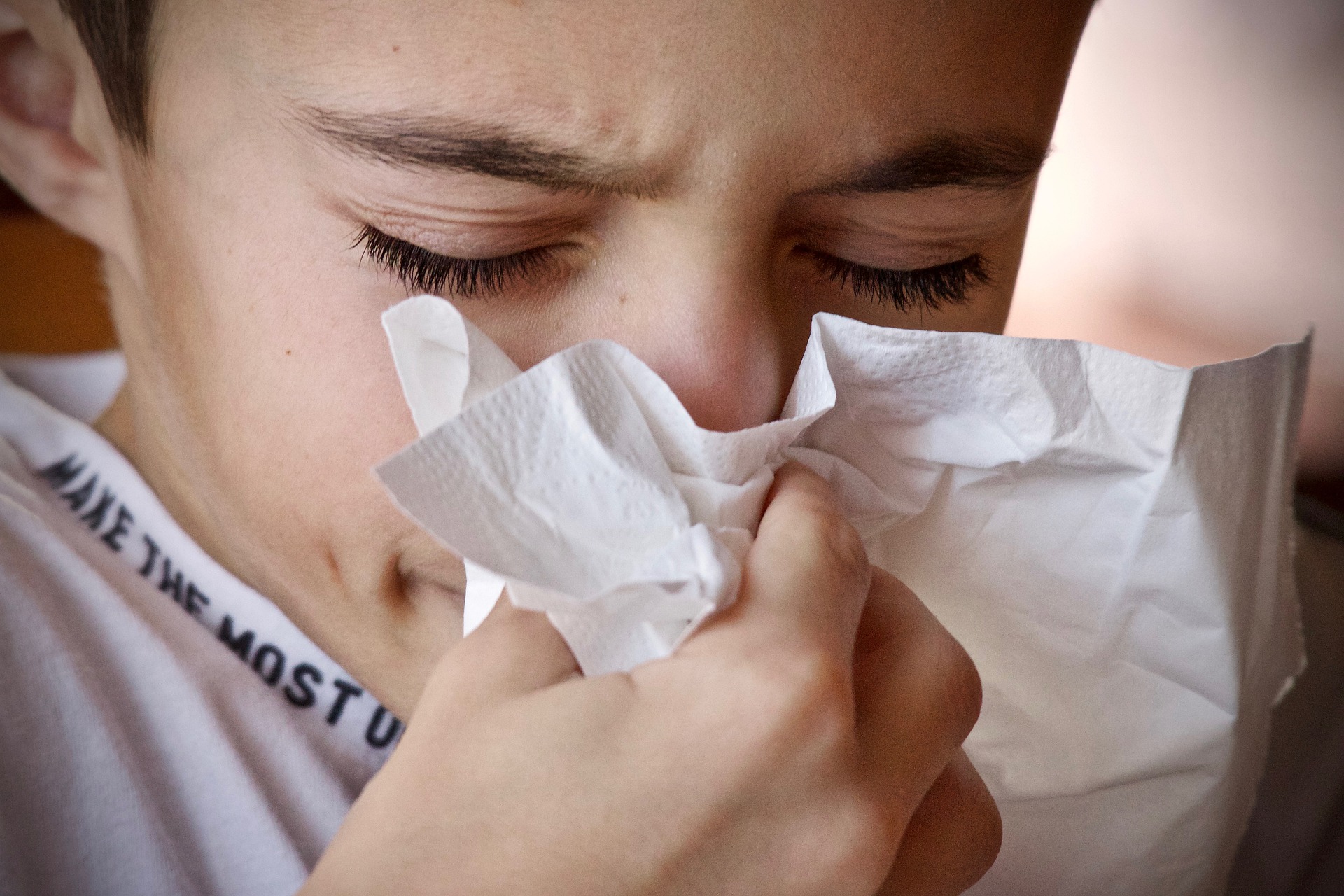Fall Allergies: What to expect | BCM - Baylor College of Medicine News

As fall arrives, cooler temperatures encourage people to spend more time outdoors. An expert at Baylor College of Medicine reminds allergy sufferers to be conscious of what is in the air and offers tips on how to protect yourself to enjoy the new season.
"People frequently experience allergy symptoms in the fall even if they are mainly allergic to pollens in the spring and summer," said Dr. David Corry, professor of medicine in the section of immunology, allergy and rheumatology at Baylor.
What to expect this season
This year, the world saw several natural events that could impact the severity of the upcoming allergy seasons.
The eruption of the Tonga Volcano in January launched a large number of particulates and aerosols into the air, Corry said, which may translate into a global weather event that could lengthen or shorten the pollen seasons in fall, winter or spring.
He also said that due to the northern hemisphere experiencing hotter and drier weather this year, some regions may experience a different season than they are used to.
"We're currently in peak ragweed season and we're also seeing a lot of mold spores in the air," Corry said. "But these unusually high temperatures earlier this year could mean potentially less cedar pollen this winter."
A final and perennial consideration is hurricanes, and we are currently in peak hurricane season. Hurricanes, but also tropical storms, are cause for serious concern for allergy and asthma sufferers. The immense amount of rain they produce, combined with the destruction of property and vegetation, invariably leads to fungal "blooms" and massive increases in fungal spores in the air. The spores in turn substantially worsen allergy and asthma symptoms for the time they are excessively present in the air, which can be weeks or even months after the storms have passed through.
A perfect storm for allergies
Many regions will begin experiencing cold fronts, which can often mean thunderstorms and more wind. Corry said these weather events can stir up a lot of allergens, such as ragweed, and unearth pollens from earlier seasons that have dried out and suck in the ground. These fronts also carry pollen from other parts of the country, such as pollen from Juniper Ashe trees in West Texas, that people are not used to.
Additionally, Corry warns about Thunderstorm Asthma, a phenomenon that can have drastic effects on certain populations.
"If you are mold-allergic or you have mold-related asthma, those can get dramatically worse very quickly and that is a real threat to health," Corry said. "Remain indoors shortly after thunderstorms and if your house has been flooded, or has water damage of any kind, repair it immediately to avoid mold growth."
Keeping allergens outside
One of the best ways to protect against allergies is to keep them outside of your home. Small particles stick to hair, skin and clothes, and Corry recommends simple strategies like showering after being outdoors and washing clothes worn outdoors to prevent from bringing allergens inside.
Allergy sufferers also should consider removing fixed carpeting from their homes, which can trap pollen and dust mites. Those unable to do so can use a quality vacuum system to clean carpets on a regular basis. Portable HEPA filters should be placed in bedrooms or living rooms to help purify the air.
According to Corry, allergens from pets and dust mites are not in the air, but can be dispersed back into the air when people walk across floors or carpets.
Allergy Relief and Treatments
Allergy sufferers usually experience symptoms ranging from mild to severe. Depending on severity, there are a few options for treatment.
Mild to moderate symptoms can be treated with over-the-counter non-drowsy antihistamines, like cetirizine, loratadine or fexofenadine, in combination with nasal steroids. Nose rinses, which can be done with a Neti pot, use a saline solution to drain nasal passageways, which is where pollen tends to collect. If these readily available regimens are not enough to provide relief, Corry recommends visiting a physician who can prescribe inhaled steroids or other types of medications to treat symptoms.
For those suffering from severe symptoms, Corry recommends allergen immunotherapy – a process in which a patient receives weekly injections of low-dose allergens that the patient has sensitivity to build up an immune response to that allergen so that over time, they stop reacting to it.



Comments
Post a Comment